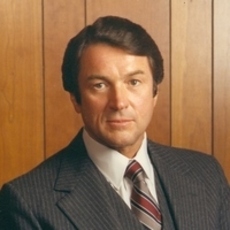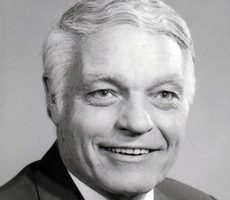 We were saddened to learn that Gary Hein, founder of Lincoln Diagnostics, passed away on Feb. 2. Several members gave tributes to Gary.
We were saddened to learn that Gary Hein, founder of Lincoln Diagnostics, passed away on Feb. 2. Several members gave tributes to Gary.
Entrepreneur, businessman, researcher, educator, mentor, devoted husband, loving father, avid sailor, and most importantly, a true friend!
Gary Hein impacted the lives of everyone he met. After graduating from the University of Illinois at Urbana-Champaign, he moved to Decatur, IL, in 1957 and worked his way up the ladder to later become president of Lincoln Laboratories, Inc. Gary’s unique creative gift was his ability to predict what actions were needed to solve problems. This was first demonstrated by his development of a new method for skin testing called the Mono-Vacc system. This discovery was enkindled by the need for more accurate skin testing for the diagnosis of tuberculosis. The discovery of the Mono-Vacc system not only enabled clinicians to diagnose tuberculosis more accurately, but was later extended to the diagnostic testing for allergic conditions.
Gary helped so many of our allergist colleagues transition from reusable metal devices such as scarifiers, smallpox needles, blood draw needles, suture needles and scalpels to safer, faster, more convenient, and more accurate disposable allergy skin testing devices. The Mono-Vacc system technology was used to administer the smallpox vaccine in the global smallpox immunization program that led to the global eradication of smallpox in 1972, which was achieved in no small measure by Gary’s discovery.
Another aspect of his character that guided Gary’s creative genius was his meticulous capacity to conduct all his life’s activities with precision and fastidiousness for accuracy and very careful attention to detail. I recall many discussions I had with Gary on his cabin cruiser in Florida and the many brilliant ideas of emerging research areas and suggestions for research projects. This charismatic, good-humored, optimistic, self-confident man was a born leader, a mentor to his associates, and a role model for us all.
Beyond all his accomplishments, Gary was a family man in every sense of the word. He was a devoted husband for Jane, a loving father for Doug and family, and above all, a true friend for us all. It is with great fondness that Jackie and I recall our many dinners together with Gary and Jane and with “the boys from Lincoln.” Mostly we treasure our times together on the boat that ferried us from Ft. Lauderdale along the Intercoastal Waterway in Florida where we all laughed, sang and enjoyed chicken sandwiches and chips while the warm sun shone upon us. These are the memories that warm the soul and help fill the loss of our good friend, Gary.
May he rest in peace with the angels in God’s paradise until we are all together again.
Joseph A. Bellanti, MD
Jacqueline R. Bellanti
The Aspen Allergy Conference (AAC) is an annual meeting that has been held for five days in July of each year, since 1982, in the old mining town and current music and skiing center of Aspen, Colorado. It was founded by a committee of representatives from each of the four allergy/immunology training programs in Denver and chaired by Dr. John Selner, a Denver allergist and former president of the College. The concept of the AAC was to provide state of the art presentations on clinical aspects of allergy/immunology and to provide presentations on the science underlying these diseases, particularly anticipating future directions of the field of allergy/immunology.
The AAC has been very successful in achieving its goal and has a loyal core of physicians who attend regularly. However, over time, many of the original and subsequent attendees have retired or passed on. This situation creates the problem of renewing the audience, particularly of introducing the outstanding teaching experience that the AAC offers to new generations of allergy/immunology fellows and young faculty. As the AAC celebrated its 20th year in 2002 and the problem of audience renewal became more urgent, the solution appeared in the form of a generous offer to provide travel grants from Gary Hein, board chairman and chief executive officers of Lincoln Diagnostics. This unsolicited and unrestricted offer allowed the AAC to provide monetary grants to attend the meeting to allergy/immunology fellows and young faculty from training programs throughout the country.
This program, which has continued for 18 years, has provided $315,000 in grants provided to approximately 300 recipients. The recipients, in turn, have added their enthusiasm to the discussion of the presentations and most have presented their research at poster sessions. There is no question that the generosity of Gary Hein and Lincoln Diagnostics has contributed greatly not only to the survival of the AAC, but also to its current status as one of the premier niche allergy/immunology conferences in the country.
I want to offer sincere appreciation to Gary Hein, on behalf of the Steering Committee of the Aspen Allergy Conference, for his generous support of the conference, through his provision of travel grant funds to the young attendees.
Harold S. Nelson, MD
I met Gary about 55 years ago. I had taken a position at St. Louis Unversity after a fellowship at Northwestern University. I was strictly an individual prick-puncture guy, laboriously placing 60 skin tests. A Lincoln representative came to my clinic and sold me on the ease and sensitivity of the Lincoln Multi-Test. I’ve been a loyal customer ever since.
However, in Gary’s eyes, I was much more than a customer. He became a friend and an advocate for allergy. He believed in the science of allergy practice, and he felt his product was enhancing the care of allergic patients. He knew the science of his product and always looked at ways he could enhance the Multi-Test.
We kept in close touch, and for many years he gave a significant donation to our Division for the Fellows Fund. Because of Gary, our fellows could purchase books and attend the College and AAAAI meetings.
I am six months younger than Gary, and my associate Mark Dykewicz told me that every time he heard from Gary, he always asked how I was doing.
It’s obvious that I was fond of Gary and respected him greatly. He was not only an astute businessman, but also an advocate for allergists and the millions of allergic patients. His contributions to the practice of allergy and immunology were monumental.
Ray Slavin, MD


